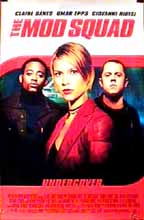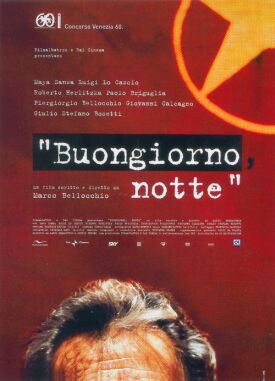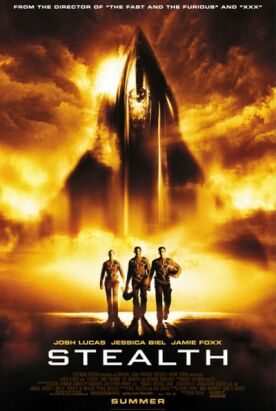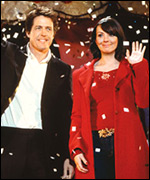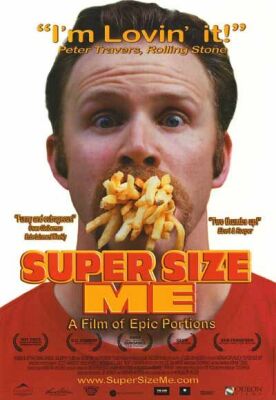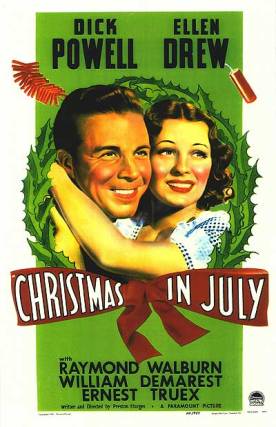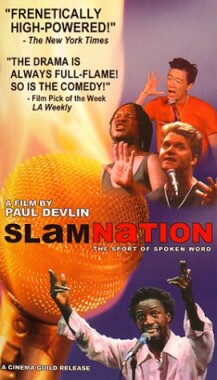Mod Squad, The
Near the end of The Mod Squad one of the three drop-dead hip teen
cops, Pete Cochran (Giovanni Ribisi), says to another, Julie Barnes (Claire
Danes): “Dirty cops, drops at the airport: I feel like one of us should say,
‘We’re getting too old for this s***’.”
Julie replies: “At least it’s not going down at an abandoned warehouse.”
Ha ha. The next thing they know they are at an abandoned airplane hanger.
“God! That’s almost an abandoned warehouse,” says Pete.
“We’re getting too old for this s***,” deadpans Julie.
Already they have noticed the strangely cinematic quality of what is going on
around them. “This is one of those dirty cop-drug things?” says Pete. “That s***
really happens?” Either that, Pete, or you yourself are in a movie.
These sorts of postmodern-style apologies for the tediousness and familiarity
of the story we are being offered, designed to disarm us with their whimsical
charm, also amount to a confession—not that one is needed—of the
preoccupation of the teen movie with attitude to the exclusion of all else. Pete
and Julie and their obligatory black partner, Linc Hayes (Omar Epps), are
criminals, sure, guilty (we are told) of arson, assault and robbery. But
underneath, see, they are good kids. They have a lot of attitude, which is cool,
because they are carrying around a lot of anger about the parental neglect and
social injustice and victimization by grown-ups generally that has made them
like this. All they need is another chance, and this they get from a kindly
policeman, Lt. Greer (Dennis Farina), who has the brilliant idea of using them
as undercover police auxiliaries because “These kids can get into a thousand
places where we can’t,” as Greer explains.
Yes, but are you at all likely to get them back again? In real life, we
should say no, but the movie doesn’t bother trying to look like real life. We
know this loopy form of crime prevention by hiring the criminals as cops is no
more believable than the fact that here almost all the cops turn out to be
criminals. But believability is obviously not a priority in this movie. The
clichés of the dirty cops and the drug drop at the airport and the
abandoned warehouse and any number of others are actually useful given that the
film’s purpose is to promote an even more venerable cliché, that of the
misunderstood teenager who is both alienated from and better than the grown-up
authority figures he inevitably feels misunderstood and oppressed by. Apart from
Greer, of whom we see very little, there is no sympathetic adult in this
picture. “We can’t trust anybody, right?” says Linc. “Just each other?”
Right, Linc. At least you noticed that the movie you’re in is being utterly
straightforward about its shameless appeal to adolescent fantasy and self-pity.
Poor Pete, wounded, in trouble and pursued by those who want to kill him, is
laughed at and rejected by his own parents when he comes to them for help. Poor
Julie is seduced, deceived and abandoned by an older boyfriend (Josh Brolin) who
is nice to her only to have his way with her (fancy that!) and turns out to be a
pimp and a drug dealer. Poor Linc is the victim of racism from the real cops
down at the station house—the same cops who turn out to be “dirty.” The
teenager’s sense of being victimized by those who have the power and the
knowledge to boss him around is as characteristic as the sense of strangeness of
the adult world suggested when the criminal kingpin, played by Michael Lerner,
ask Linc to dance with him. “I’m not a fag, I just like to dance,” he says.
O-o-o-o-kay, as my own teenager would say.
All teen movies aspire to the condition of music videos, and The Mod Squad
is no exception. Having established early on the paradigm of the teen victim
fighting the corruption of the adult world, however implausibly, there is
nothing left to do but play the loud music by really hot bands and accompany it
with self-consciously arty camera work that looks like something out of a Pepsi
commercial. Well, after all, it is the Pepsi generation, fighting crime and mean
adults simultaneously and looking very cool about it, I’m sure, to the thirteen
and fourteen year olds who are the movie’s intended audience.
Discover more from James Bowman
Subscribe to get the latest posts to your email.

